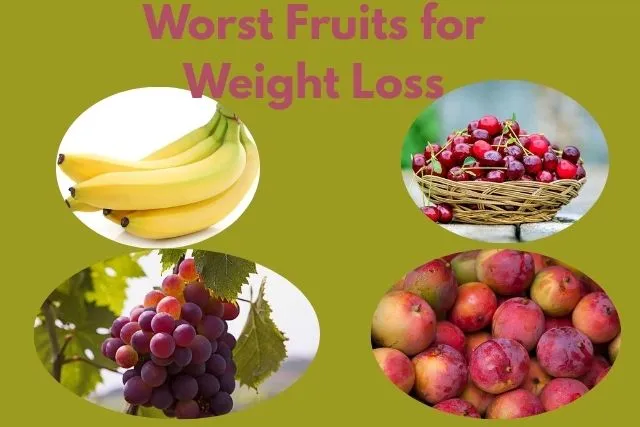Can you lose weight just by dieting

Yes, you can lose weight just by dieting. Calorie deficit through diet is key to weight loss.
Achieving weight loss often boils down to the simple equation of consuming fewer calories than the body expends daily. While exercise can certainly enhance this process by boosting metabolism and increasing muscle mass, which in turn burns more calories, it isn’t the only way to shed pounds.
Opting for a well-structured dieting plan, you can effectively create a calorie deficit, leading to weight loss. Ensuring the diet is balanced and nutrient-rich is crucial to maintaining health and long-term success. This approach relies on careful food choices and portion control, principles that form the backbone of successful dietary interventions for weight loss. Embrace a sustainable eating pattern with mindful selection of foods to drive your weight loss journey forward.
Can You Lose Weight Just By Dieting?
Losing weight hinges on a simple principle: calories in versus calories out. Calorie-based energy is what your body needs to function.When you consume fewer calories than you burn, your body turns to fat stores for energy. This process leads to weight loss. Eating various healthy foods can help control your calorie intake. When you workout, your calorie burn increases.Combining a balanced diet with physical activity is the best approach. Keep portions in check and choose nutrient-dense foods for successful dieting results.

Evaluating Common Dieting Myths
Many diets promise quick weight loss, but not all are true. Fad diets often lack scientific support and may be harmful to your health. The belief that cutting out carbs or eating more protein alone works miracles is not accurate. Real weight loss takes time and involves balanced eating habits.
Your metabolism plays a key role in how quickly you lose weight. A fast metabolism burns calories quickly, while a slower one does not. Simply dieting might not significantly speed up your metabolism. To boost metabolism, combine healthy eating with regular exercise.
Nutrition’s Role In Weight Loss
For weight loss, a balanced diet is crucial. It includes fruits, vegetables, whole grains, and lean proteins. These items give you nutrients and make you feel full. Your body needs fewer calories than it burns to lose weight. Making smart food choices helps you eat fewer calories. A diet full of vitamins, minerals, and fiber supports your health while you shed pounds. Don’t forget the importance of portion control!
Eating too much of even healthy food can gain weight. Keep track of the size of your meals. Enjoy various foods but in small portions. This way you won’t eat too many calories. Proper portions mean you won’t feel hungry. It’s not just what you eat, but how much you eat that matters in dieting.
The Physical Activity Factor
Losing weight often involves monitoring dietary habits. Yet, the role of physical activity cannot be ignored.
Regular exercise boosts metabolism and increases caloric burn. A balance between diet and exercise is essential.
Studies show that diet contributes to weight loss, but exercise is key for maintaining it.
Dieting alone can lead to weight loss. But without exercise, one may lose muscle mass alongside fat.
| Exercise | Diet |
| Maintains muscle strength | Controls calorie intake |
| Improves metabolism | Manages nutritional balance |
| Supports weight maintenance | Essential for initial weight loss |

Many people eat not just for hunger but due to feelings. Sad or happy, they turn to food. This is known as emotional eating. Recognizing these patterns is the first step. Altering these habits can greatly impact weight loss. It’s not just about what you eat, but also why you eat.
To lose weight by dieting, changing what you eat is crucial. But don’t overlook why you eat. A big part might be your emotions. Managing emotions can lead to better food choices. This doesn’t happen overnight. It requires consistent efforts and sometimes professional help.
Long-term Weight Management
Losing weight by dieting alone is often challenging. Successful weight management demands consistent changes in eating habits. Lifestyle adjustments, including regular physical activity and proper sleep, play essential roles. To keep lost weight off, one must pursue healthy lifestyle choices that support balance.
Effective strategies include planning meals and choosing nutrient-rich foods. Tracking your progress can help maintain motivation. Engaging in daily activities that promote calorie burning aids in preventing weight regain. These steps should be part of a daily routine for long-lasting health benefits.
Case Studies And Success Stories
Many individuals have shared their weight loss stories, highlighting the impact of dieting alone. Success is not just about shedding pounds, but also about adopting healthier eating habits.
For example, a middle-aged woman changed her diet and lost 20 pounds without exercise. Her story, along with others, showcases that weight loss can stem purely from dietary changes. These real-life examples offer motivation and demonstrate that significant results are indeed possible.
- John S. – Eliminated sugar, lost 30 lbs in 4 months
- Lisa P. – Switched to vegetables, shed 15 lbs in 3 months
- Omar D. – Started a high-protein diet, dropped 25 lbs in 5 months
Navigating The Weight Loss Information Overload
Trying to lose weight can feel overwhelming with so much information available. It’s crucial to choose trustworthy sources for guidance. Look for advice backed by scientific research and medical professionals. Be wary of suggestions that promise quick and easy results without effort.
Many diets promote rapid weight loss, but these can be dangerous. Lasting weight management involves changes that you can stick with over time. Be skeptical of programs that include pills or potions as miracle cures. Often, they can have unwanted side effects and are not effective.

Frequently Asked Questions Of Can You Lose Weight Just By Dieting
Is Dieting Alone Enough For Weight Loss?
Dieting can lead to weight loss if it creates a calorie deficit. Eating fewer calories than your body needs forces it to burn stored fat. However, combining diet with exercise is more effective for sustained weight loss and overall health.
How Much Weight Can You Lose By Dieting?
Weight loss from dieting varies per individual. A safe amount to lose is 1-2 pounds per week. This can be achieved by reducing daily caloric intake by 500-1000 calories. Rapid weight loss from extreme diets is not recommended.
What Are The Best Dieting Strategies For Weight Loss?
Effective dieting strategies include eating more whole foods, controlling portion sizes, and reducing sugar and refined carb intake. Also, planning meals and tracking food intake can immensely aid in disciplined dieting efforts.
Can Dieting Without Exercise Affect Metabolism?
Yes, dieting without exercise can slow metabolism. The body adapts to lower calorie intake by becoming more efficient, burning fewer calories. To prevent this, incorporate resistance training to maintain muscle mass and keep the metabolism active.
Conclusion
Shedding pounds through diet alone is possible, but success hinges on sustainable, healthy habits. Balancing nutrition with a bit of physical activity amplifies results. Commit to a personalized plan and consult with professionals for optimal health. Remember, a journey to weight loss is a step-by-step process.
Stay patient and stay motivated!





